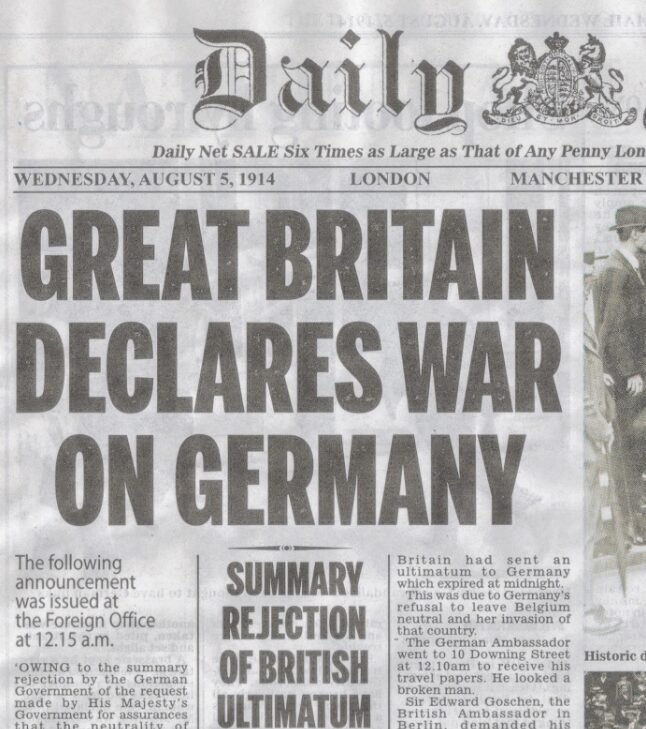This content has been archived. It may no longer be relevant. For the latest news, click: theasianmirror.com/
Reasons behind Britain’s involvement in World War 1 including:
- Treaty Obligations: Britain had a treaty with Belgium, guaranteeing its neutrality. When Germany violated Belgium’s neutrality by invading it in August 1914, Britain saw it as a threat to its own security and felt compelled to honor its treaty obligations.
- Balance of Power: Britain was a major global power and had a longstanding policy of maintaining a balance of power in Europe. The rise of Germany as a dominant force on the continent threatened this balance, and Britain sought to prevent German hegemony.
- Imperial Interests: The British Empire was the largest empire in history, and maintaining control over its colonies and protecting its imperial interests were crucial for Britain. The war provided an opportunity to protect its territories, as well as to secure new ones, especially in the Middle East and Africa.
- Naval Supremacy: The Royal Navy was the world’s most powerful navy at the time, and maintaining control of the seas was vital for British trade and security. Reasons behind Britain’s involvement in World War 1. The war allowed Britain to assert its naval supremacy and establish a blockade against Germany, cutting off its access to vital resources.
- Fear of German Expansion: Britain viewed Germany’s growing military and economic power with concern. Germany’s expansionist policies and its naval arms race with Britain, particularly the construction of a powerful fleet, raised fears of German aggression and domination.
- Alliances: Britain had entered into alliances with France and Russia, known as the Triple Entente. These alliances were formed as a counterbalance to the Triple Alliance, which included Germany, Austria-Hungary, and Italy. When Germany declared war on Russia and France, Britain felt obligated to support its allies.
- Public Opinion and Patriotism: There was a strong sense of patriotism and a belief in the righteousness of the British cause among the public. The government and media played a role in rallying support for the war, portraying it as a defense of liberty and the British way of life.
It’s important to note that the reasons for Britain’s involvement in World War I were complex and multifaceted, involving a combination of strategic, political, economic, and ideological factors. The decision to enter the war was influenced by a combination of national interests, alliances, and perceived threats to Britain’s security and global influence.
Also read: How Romans Influenced Great Britain
